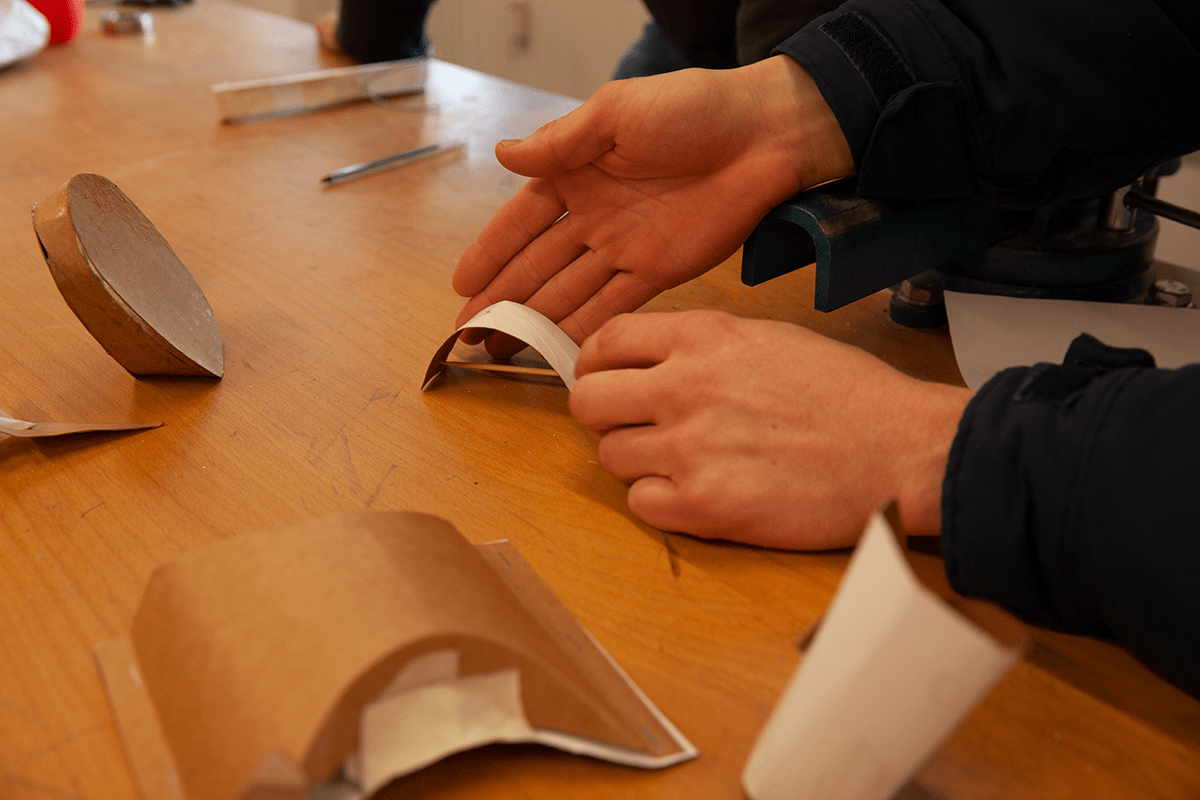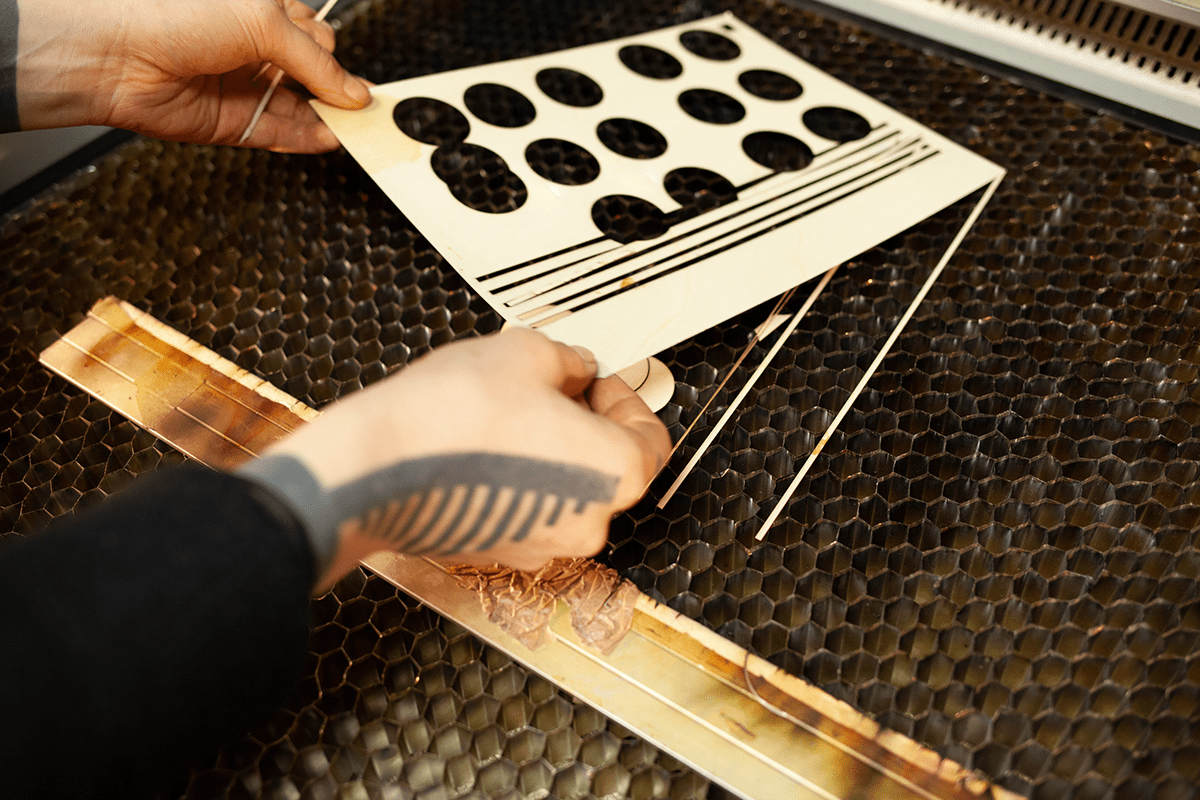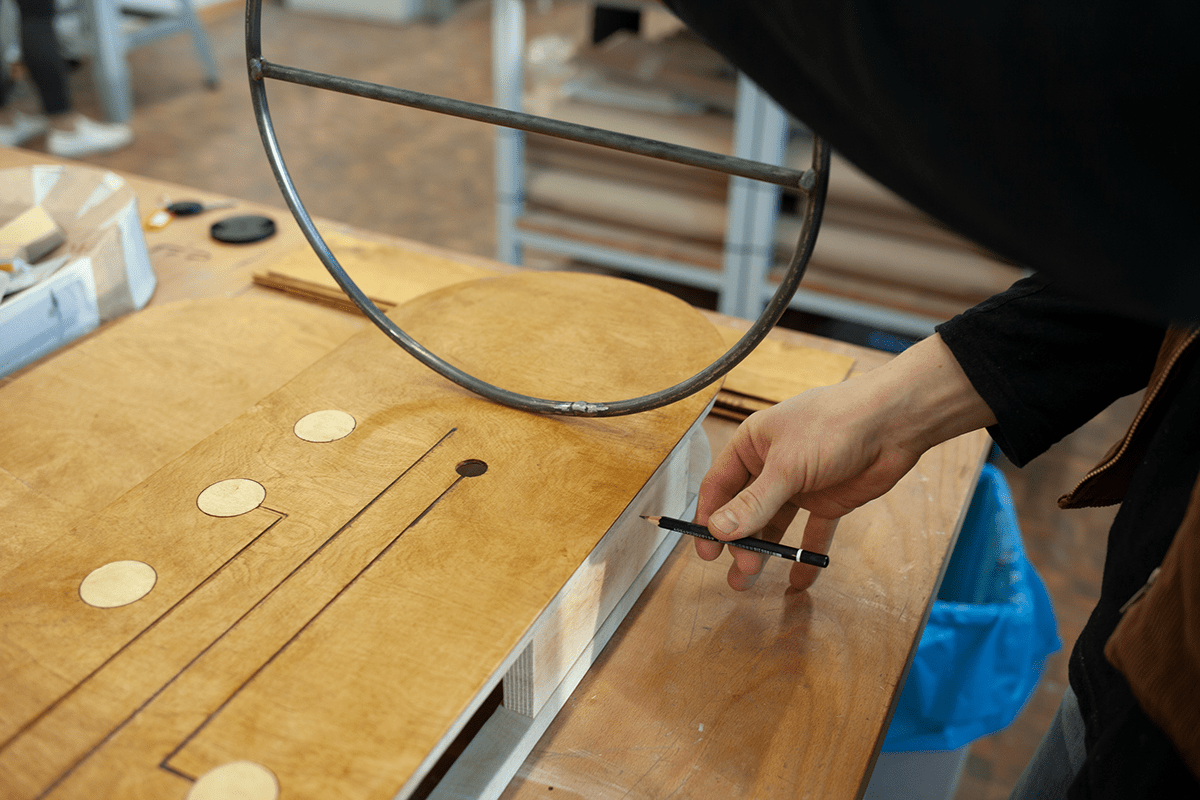
Loxi
is a group-project realised in the course "Tracks", supervised by Alexander Müller-Rakow and Pelin Celik, during the winter-semester 2018/2019.
Team members behind Loxi are Johanna Leißner, Fabian Zaja, Jennifer Naffin and Felix Bamforth. The name Loxi is an abreviation of Loxias, an epiclesis and alternative name for the greek god Apollo.





Research
The project started with reflection and research on our chosen term („Rehabilitation & therapy“) in conjunction with music. We quickly settled on the term Music Therapy as a leading concept, but had no clear idea of what it really meant and entailed. We brainstormed and clustered keywords to organise our thoughts, but quickly realised we had to get real information, right from the source.
We interviewed over 10 music therapists from Berlin and Beyond. By speaking with professionals who have been doing this job for years, we were able to quickly acquire a solid understanding of the challenges of introducing digital instruments in a very analog world. Our research taught us our solution would have to take following core points into account: Playfulness, participation, multisensory feedback and analog sound. These keywords serves as the basis for the development of our concept.
By finding out more about this discipline, we were able to differentiate between neurological and psychatric music therapy and develop a tailored solution addressing issues of psychatric music therapy.





Concept & Build
With our newly collected information and our keywords, we decided to build a wooden music intstrument that resembles those traditionally used in music therapy, but introduces digital media in a smart way.
We started off by building lots of paper protypes in order to find a good shape. Parallel to that, we researched on how to find a good digital system to produce actual sound. We settled on using capacitive sensors and electromagnets to help us vibrate metal strings attached inside of the instrument.
The final shape of the instrument ended up resembling a cradle, formally inspired by Peter Keler‘s famous cradle design from 1922. This would symbolically support the palliative idea behind this project and allow a participatory way of playing it - from both sides. The capacitive sensors make playing the instrument very easy, which allows a wide variety of people to actually play the instrument, with minimal effort.







Findings
The project was extremely insightful, regarding both our learning about music therapy, but also the ins-and-outs of working on a more extensive design project. We learned to research and interview, and then to transform those research results into valubale information.
We were able to exhibit our project on the Dutch Design Week 2019 and received multiple compliments for this project. The current prototype, however, is far from final. We've been looking for ways to improve the build, especially the electronics, and to test it more extensively. Should you be interested in supporting our project, please get in touch with us!

Thank you!

